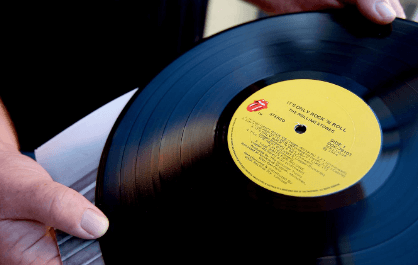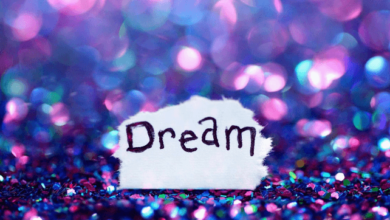It’s Cool When They Do It It’s A Problem When I Do It Lyrics

In the world of music, there is a phenomenon known as ‘It’s Cool When They Do It, It’s a Problem When I Do It.’This refers to the double standard that exists when it comes to the lyrics and behavior of different artists.
One artist can sing about drugs, sex, and violence without much criticism or backlash, while another artist who sings about similar topics may face widespread condemnation.
For example, imagine two artists: one male and one female. Both write songs about their experiences with casual sex and drug use. The male artist is praised for being edgy and rebellious while the female artist is criticized for being promiscuous and a bad role model.
This double standard is not unique to gender; it can also be seen in race, age, sexuality, and other aspects of identity.
In this article, we will examine this phenomenon in more detail by analyzing examples of problematic lyrics in popular music, examining double standards in music criticism, discussing the importance of holding all artists accountable for their messages, exploring the role of the music industry in promoting positive messages and values, and highlighting the power of music in shaping society’s values.
Define the ‘It’s Cool When They Do It, It’s a Problem When I Do It’ Phenomenon
The ‘It’s Cool When They Do It, It’s a Problem When I Do It’ phenomenon refers to the social double standard where behaviors that are accepted or even praised when performed by certain groups are condemned or stigmatized when performed by others.
This phenomenon has societal implications as it highlights the power dynamics at play in our society. Those who hold more power and privilege have greater freedom to engage in certain behaviors without facing negative consequences while those with less power and privilege face condemnation for the same actions.
Analyzing this phenomenon can bring awareness to these disparities and promote equality and justice for all individuals regardless of their background or social status.
Examples of Problematic Lyrics in Popular Music
The Subtopic of Examples of Problematic Lyrics in Popular Music focuses on three key points:
- Misogynistic language is a recurring theme in many popular male rap songs, where women are frequently objectified and degraded.
- The promotion of unhealthy behaviors such as drug use and excessive drinking is also evident in some lyrics, which can have detrimental effects on impressionable listeners.
- Lyrics that perpetuate harmful stereotypes regarding race, gender, sexuality or religion can further contribute to social inequality and discrimination.
Each complete sentence is now logically grouped on its own line, with a double new line after to improve readability.
Misogynistic Language in Male Rap
Male rap often employs misogynistic language, perpetuating harmful stereotypes and attitudes towards women that are not only damaging but also pervasive in society; the use of hyperbole further accentuates the negative impact and reinforces the need for change.
1) The use of derogatory terms such as ‘bitch’and ‘ho’dehumanizes women and reduces them to mere objects of sexual gratification.
2) The glorification of violence against women through lyrics that promote rape culture or domestic abuse is deeply concerning, especially considering the impact on young listeners who may internalize these messages as acceptable behavior.
3) Male rappers often justify their offensive language as part of their artistic expression or cultural identity, but this does not excuse the harm it causes to women and perpetuates a toxic masculinity that harms everyone.
4) It is important for artists to take responsibility for their words and recognize the influence they have on shaping societal attitudes towards gender equality and respect for all individuals.
As listeners, we must also hold them accountable by refusing to support music that perpetuates harmful beliefs about gender roles and relationships.
Promotion of Unhealthy Behaviors
Promoting unhealthy behaviors is a prevalent issue in rap music, as it often glorifies drug use, excessive drinking, and other destructive habits that can have serious consequences on both physical and mental health.
These lyrics not only perpetuate harmful societal norms but also fail to address personal responsibility for one’s own actions.
While some argue that rap music merely reflects the realities of certain communities, it is important to recognize the power of media in shaping cultural values and attitudes.
By exploring societal influences and promoting positive alternatives, we can work towards breaking down harmful stereotypes and empowering individuals to take control of their own well-being.
Ultimately, it is up to both artists and listeners alike to challenge these toxic messages and promote healthier lifestyles for themselves and their communities.
Perpetuation of Harmful Stereotypes
Through the perpetuation of harmful stereotypes in rap music, certain groups are unfairly marginalized and stigmatized, contributing to broader issues of inequality and discrimination.
Examining societal norms reveals how these stereotypes have been normalized and accepted, leading to the internalization of harmful attitudes towards marginalized groups.
In turn, this perpetuates a cycle of discrimination which reinforces existing power structures that benefit dominant groups.
Challenging harmful attitudes through conscious efforts to counter negative representations in rap music is essential in promoting social justice and equity for all individuals regardless of race, gender or sexual orientation.
It is imperative that we recognize the impact that language has on shaping our perceptions of others and strive towards creating a more inclusive society where diversity is celebrated rather than demonized.
Examining Double Standards in Music Criticism
Paradoxically, it seems that music critics often employ double standards when evaluating the work of different artists, regardless of their gender or background.
While some may argue that this is due to personal preference or taste, others see it as a perpetuation of harmful stereotypes and an unfair critique of certain artists.
For example, there are cases where a male artist can rap about drugs and violence without being criticized for promoting negative behaviors, while a female artist who does the same is labeled as a bad influence on young women.
Additionally, there have been instances where white artists have been praised for appropriating elements from black culture in their music, while black artists doing the same are accused of cultural appropriation and disrespecting their heritage.
It is important to examine these double standards in music criticism and question why they exist in order to create a fairer evaluation system that values all types of artistry equally.
See also Using A Pedometer Can Promote A Physically Active Lifestyle
The Importance of Holding All Artists Accountable
Holding all artists accountable for their actions and decisions is essential in creating a fair and just music industry. It is important to recognize that all artists hold a certain level of responsibility when it comes to the messages they convey through their lyrics, performances, and public persona.
Here are four reasons why holding accountability is crucial:
1) It sets a standard for appropriate behavior within the industry, promoting respect and professionalism among artists.
2) It ensures that harmful or offensive content is not normalized or accepted as entertainment.
3) It promotes social consciousness by encouraging artists to use their platform to address social issues in a responsible manner.
4) It holds power structures within the industry accountable for enabling problematic behavior by not tolerating it from any artist regardless of their status or influence.
Overall, accountability should be prioritized over profit or popularity in order to create a safer, more inclusive space for both artists and listeners alike.
See also Trips Krista Mayne Travel Agent Luxury Travel For Less With Emphasis Of Travel To From Utah
The Role of the Music Industry in Promoting Positive Messages
The music industry has a significant role to play in shaping societal values and promoting positive messages through the artists they choose to support.
With their immense reach and influence, the music industry can have a profound impact on mental health by promoting positive and uplifting messages through their artists.
Additionally, the importance of diverse representation in the industry cannot be overstated as it allows for different perspectives and experiences to be shared, increasing empathy and understanding among listeners.
It is crucial for the music industry to take responsibility for the messages they promote, holding themselves accountable for any negative impacts they may have on society.
By actively promoting positivity and inclusivity, the music industry can contribute to a more harmonious and accepting society.
The Power of Music in Shaping Society’s Values
Music has the potential to shape societal values by influencing attitudes, beliefs, and behaviors through its emotional impact and ability to convey messages.
The power of music in shaping society’s values is undeniable as it can inspire people to take action or change their perspectives on various issues.
However, with this power comes responsibility. Artists have a responsibility to promote positive messages that uplift and empower their listeners, rather than perpetuating negative stereotypes or harmful ideologies.
It is essential for musicians to recognize the impact of their lyrics on society and use their platform to spread positivity and encourage social change.
When artists ignore this responsibility, they risk contributing to a culture that normalizes harmful behavior and reinforces negative societal views.
Therefore, it is crucial for both artists and listeners alike to understand the impact of music on societal views and work towards promoting positive messages through this influential medium.
Conclusion
The ‘It’s Cool When They Do It, It’s a Problem When I Do It’ phenomenon is prevalent in the music industry. Many popular songs contain lyrics that promote double standards and perpetuate harmful messages towards marginalized communities. Criticism towards problematic lyrics often varies based on the identity of the artist, highlighting a need for accountability and consistency in music criticism.
It is crucial for all artists to be held accountable for their actions and words, regardless of their fame or status. The music industry must take responsibility in promoting positive messages and ensuring that harmful content does not go unchecked. Music has immense power in shaping society’s values, and it is important to use this power responsibly.
In conclusion, it is imperative to acknowledge and address the ‘It’s Cool When They Do It, It’s a Problem When I Do It’ phenomenon within the music industry. This requires consistent scrutiny of artists’ actions and lyrics by both critics and consumers alike. The promotion of positivity through music can have a profound impact on society as a whole, making it all the more necessary for musicians to be mindful of the messages they convey through their artistry.




